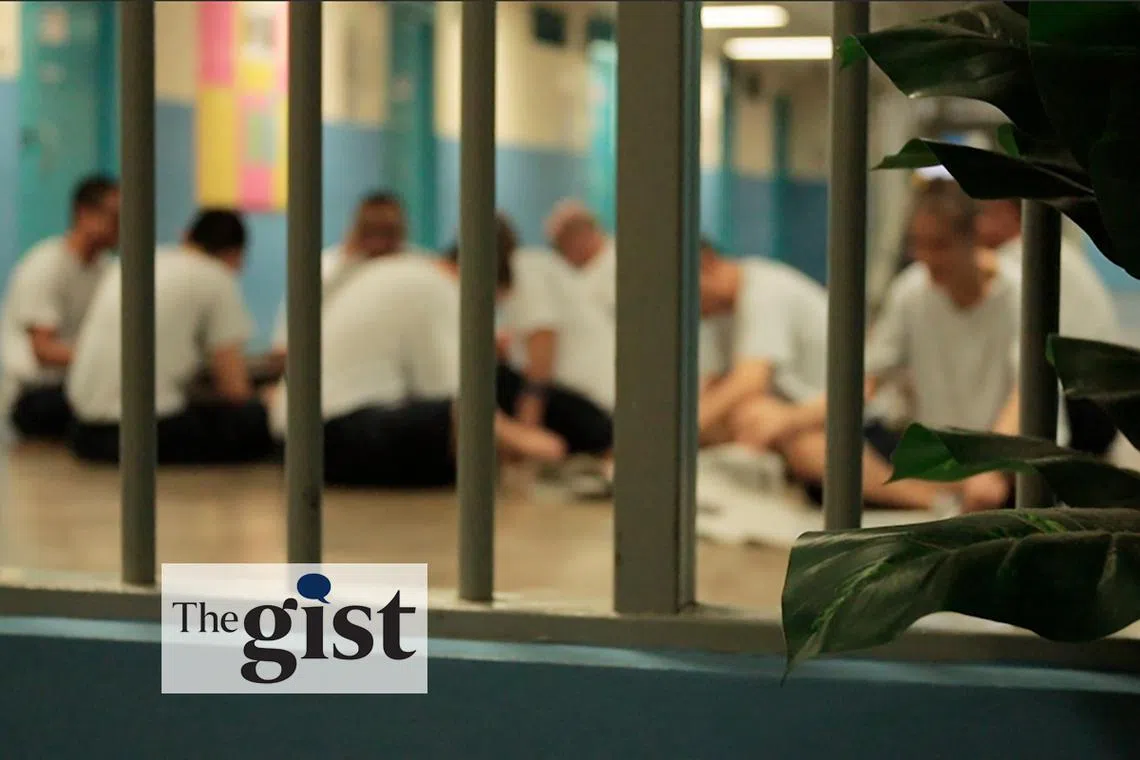The gist: Detention without trial law renewed, Mandai public golf course tenancy extended
Sign up now: Get ST's newsletters delivered to your inbox

The Criminal Law (Temporary Provisions) Act was extended for the 15th time since it was enacted in 1955.
PHOTO: ST FILE
SINGAPORE – A law that allows for detention without trial for offences such as secret society activities has been renewed, after the Criminal Law (Temporary Provisions) Act was extended for another five years.
Meanwhile, the public will be able to golf at Mandai for another two years, after it was announced in Parliament that the operator has received a tenancy extension.
Here are the key takeaways:
Law that allows for detention without trial renewed
Special powers that allow the Government to detain a person without trial over alleged links to syndicates and secret societies were renewed in Parliament on April 3.
This marks the 15th extension of the Criminal Law (Temporary Provisions) Act (CLTPA) since it was enacted in 1955.
Minister of State for Home Affairs Muhammad Faishal Ibrahim called the law “a critical piece of legislation” to deal with egregious criminal activity that threatens the sense of safety and security in Singapore.
He said the powers are exercised carefully and used only when prosecution is not viable, such as in cases where witnesses refuse to testify for fear of reprisal.
Why it matters:
There are still active secret societies in Singapore, though not in the numbers seen in some other countries, said Associate Professor Faishal during the debate.
Such groups are a menace to law and order, public safety and security, as they recruit young Singaporeans and engage in illicit activities and violent conduct, he said.
He noted that 123 people were dealt with under the CLTPA between October 2019 and December 2023.
Besides gang-related incidents, the law has also been used against organised crime such as unlicensed moneylending. For instance, it was used in 2019 to detain a number of leaders and financiers of a syndicate linked to more than 1,800 cases of debtor harassment.
Without the CLTPA, the authorities would not have been able to do much against these perpetrators as victims were unwilling to testify for fear of retaliation, said Prof Faishal.
Essential services providers proposed to be held to higher cyber-security standards

The authorities can require organisers of major events to disclose their cyber-security measures under the Cybersecurity (Amendment) Bill.
PHOTO: PEXELS
Operators of essential services here must declare cyber-security outages and attacks faced by suppliers, as well as require contractual assurances in their supply chains, as part of proposed changes to the Cybersecurity Act tabled in Parliament on April 3.
The authorities can also require organisers of major events here and autonomous universities to disclose their cyber-security measures under the Cybersecurity (Amendment) Bill.
The changes will expand the Cyber Security Agency of Singapore’s (CSA) oversight of critical information infrastructure and any linked third-party systems that support its services, as well as grant it the authority to audit the digital defences tied to major activities, select universities and other groups that hold sensitive data or perform significant functions.
Why it matters:
The proposed changes seek to address the evolving tactics used by cyber criminals to disrupt essential services such as energy, water, banking, healthcare and transport.
The CSA said the Bill will expand its oversight of critical information infrastructure, as threats can often be obscured with increased digitalisation.
The Bill aims to ensure that owners of such infrastructure remain responsible for their cyber security and resilience, even as they embrace new technologies and business models, such as cloud computing.
If you have a few more minutes:
Mandai public golf course tenancy extended to 2026
The public will be able to golf at Mandai for another two years, after Senior Parliamentary Secretary for Culture, Community and Youth Eric Chua announced that the tenancy of the public golf course there has been extended to end-2026.
This came after the authorities announced in February that the Mandai Executive Golf Course would be making way for a new outdoor adventure learning centre
Mr Chua said the golf course in Upper Seletar Reservoir was granted the extension as part of moves to provide public access to golfing.
The authorities are also looking at various options to ensure continued public access to golf courses, he added.
These include exploring with Keppel Club the possibility for night golfing at its Sime Course.
Night golfing is now offered only at the Marina Bay Golf Course, which is due to close down at the end of June 2024.
Tighter regulatory controls on the cards for transport firms
Some companies in the air, land and sea transport sectors will be subject to greater regulatory controls over their ownership and top management, if proposed legal amendments are passed.
The Transport Sector (Critical Firms) Bill, introduced in Parliament on April 3,
The controls include requiring the designated entities to notify and seek official approval if there are major changes in ownership and leadership.
These firms must also keep the authorities informed of events that could significantly impede the provision of essential transport services here, such as a lawsuit or insolvency.



